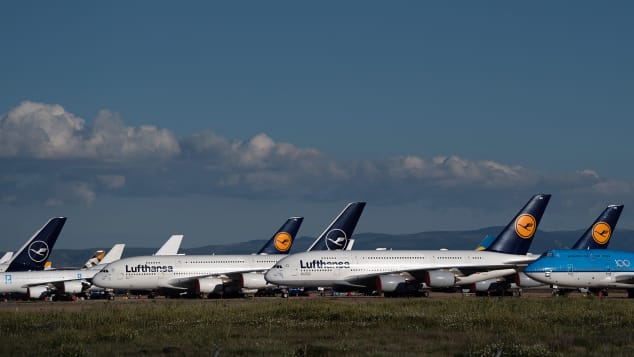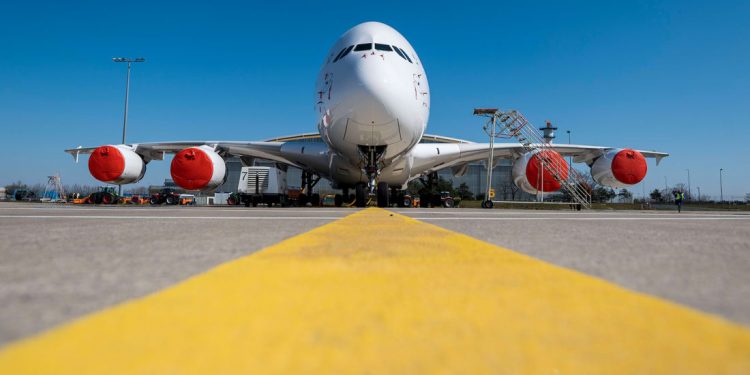The A380 superjumbo is beloved among aviation fans, thanks to its spacious interior, mighty size and quiet inflight experience, but its days have been numbered since Airbus announced in 2019 it was ceasing production of the airliner.

Costly to run, the world’s largest passenger aircraft’s demise was apparently accelerated by the Covid-19 pandemic travel slump, but now German airline Lufthansa — which had been selling off its grounded A380s and was understood to be retiring the aircraft from its fleet — has announced plans to redeploy the huge plane from summer 2023.
In a statement released on Monday, Lufthansa said the aircraft was returning “in response to the steep rise in customer demand and the delayed delivery of ordered aircraft,” noting the A380 remains popular with its crew, as well as passengers.
Lufthansa has sold six of its A380s over the last couple of years and the airline has eight superjumbos remaining in its fleet. These aircraft are currently in “deep storage” in Spain and France.
The German flag carrier says it’s still assessing how many A380s will be reactivated, and is figuring out what routes they might fly on.
Typically airlines deploy superjumbos on long-haul, popular routes. The size of the aircraft makes them costly to run, so there has to be demand to justify it.
While in recent years the A380 appeared to be on the way out, Lufthansa’s decision suggests the A380’s not consigned to the history books just yet. Superjumbos also remain in Singapore Airlines, Emirates, Qantas, Qatar Airways, Korean Air, All Nippon Airways and British Airways’ fleets.
Upon delivery of the final A380 in December 2021, Emirates president Tim Clark said it will “remain Emirates’ flagship product for the coming years.”
Singapore Airlines, meanwhile, acknowledged the passenger appeal of the superjumbo when announcing plans to reinstate the aircraft last year. “Some people just book the A380 specifically to fly on it,” Siva Govindasamy, Singapore Airlines’ global public affairs head, told CNN Travel.
Earlier this year, an Airbus A380 also completed a test flight powered by Sustainable Aviation Fuel, or SAF — a type of fuel predominantly made of used cooking oil and waste fats — and operating on a single Rolls-Royce Trent 900 engine.















